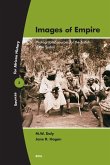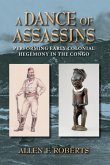In this collection of ethnic group histories, written by authors from the Mara Region of Tanzania, local people tell their stories as a way to inspire development that builds on the strengths of the past. It combines histories from the small, but closely related, ethnic groups of Ikizu, Sizaki, Ikoma, Ngoreme, Nata, Ishenyi and Tatoga in South Mara, east of Lake Victoria and west of Serengeti National Park. Many of the authors compiled their stories by meeting with groups of elders. They were concerned to preserve history for the next generation who had not taken the time to learn the stories orally. The stories were written in Swahili and translated into English with annotations and an introduction so that readers not familiar with this region might also share in the experience. It also includes transcriptions of oral interviews with some of the same stories to get a sense of the ongoing conversions about the past. This collection makes local history told in a local idiom accessible to students of African history interested in social memory and the creation of ethnicity.
Hinweis: Dieser Artikel kann nur an eine deutsche Lieferadresse ausgeliefert werden.
Hinweis: Dieser Artikel kann nur an eine deutsche Lieferadresse ausgeliefert werden.







